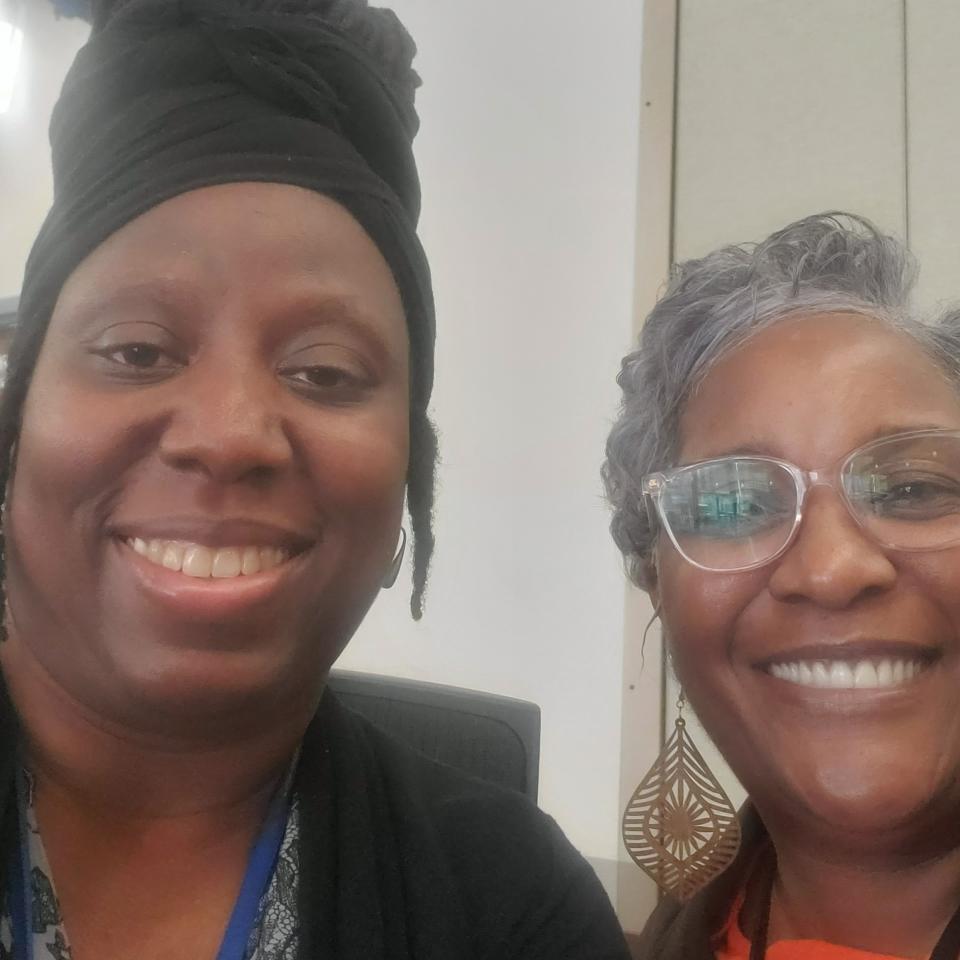

05.24.23
Cover image: Chief Behavioral Officer Lawanda Williams, MPH, LCSW-C (left), and Tammy Montague, LCSW-C, call for an end to social work exams that prevent Black and brown people from getting their licenses.
After failing the social work licensing exam for the third time, Lead Therapist Case Manager Tammy Montague, LCSW-C, was devastated. After all, she had thousands of clinical hours and an advanced degree. She turned to other Black social workers to ask how they had passed. Their advice? “Choose the answer that a middle-aged White woman would choose.” “I had to take ‘me’ out of it,” says Tammy. “And I felt really bad about that. Social work and human services—there’s part of us that is inside the work.”
Tammy was not surprised when she read the results of The Association of Social Work Boards (ASWB) 2022 study regarding the exam. It confirmed what many Black social workers have known for years: there is a glaring racial disparity in test outcomes. White candidates are 60% more likely to pass than Black candidates.
This year, Tammy and other Black social workers called for immediate exam reform in testimony before the Maryland legislature. Partnering with state Senator Mary Washington, Social Workers for Equity and Anti-Racism (SWEAR) called for two things: 1) a moratorium on the exam and 2) a temporary license for those who have fulfilled every other requirement. They were inspired by states like Illinois that have eliminated the exam altogether, citing the same disparities.
“There are so many qualified and competent Black and brown social workers that are not able to get licensure because of this culturally biased exam,” says Tammy.
ASWB, which administers the exam nationally, has pointed to racism more broadly as the source of these disparities, rather than with the exam design itself. Tammy finds that frustrating. “If you’re saying the exam works,” she says, “you’re saying that White social workers are more competent than Black social workers.”
Women of color stood at the forefront of this year’s advocacy and got SB 871 passed. While not the strong response that is needed, it did create a workgroup to study bias in social work licensure.
“As it stands,” wrote State Senator Washington on social media, “this national exam has veto power over all social work licenses in the state of Maryland…. It stands between qualified professionals and what our communities need.”
Tammy passed the exam in February and remains an avid believer in the power of social work. Currently pursuing a doctorate, she works every day with “some of the most caring people I’ve ever met.”
“Who doesn’t need someone there that can listen and have regard for them as a human being? That’s the kind of love social work brings,” she said.
Our work is powered by dozens of impassioned social workers like Tammy, and we need more of them on our team! We support staff with:
- Starting salaries for new graduates at $65,000
- Paid LMSW, LCSW, and LCPC renewals
- $1k per year in professional development funds
- Clinical supervision support
- Competitive benefits
More Recent News
February 1st marks the start of Black History Month. During this time, we have a chance to focus on the significant role Black populations have played in shaping the world and to celebrate their contributions to society that have often gone overlooked.
Any change in administration brings new policy priorities. Recent actions by the federal Administration, Congressional leadership and the Supreme Court outline dramatic policy changes in the years ahead that could negatively affect the people we serve. The agency will be guided by the following principles, consistent with our approach over the past 40 years.
Pass the Mic features the voices and stories of people with a lived experience of homelessness. In this edition, hear from Deborah - a US Army veteran, Bingo lover and lifelong volunteer.